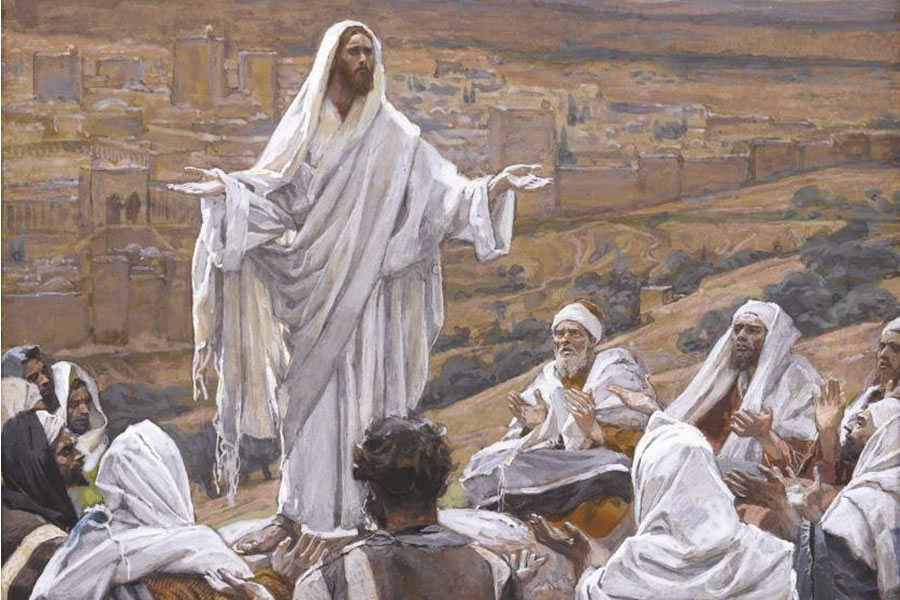Blog & Pastor Letters

Fourteenth Sunday in Ordinary Time – July 7, 2024
07-07-2024Weekly ReflectionDeacon Steven D. GreydanusThe Catechism of the Catholic Church, in the section on the First Commandment, lists atheism as “a sin against the virtue of religion” — not just a false belief or an error, but a sin. Now, the Catechism is quick to acknowledge that culpability in particular atheists “can be significantly diminished in virtue of the intentions and the circumstances.” In praying for “those who do not acknowledge God” in the Solemn Intercessions on Good Friday, the Church asks that, in “following what is right in sincerity of heart, they may find the way to God himself.” So disbelieving in God’s existence doesn’t automatically mean that someone isn’t sincere in seeking to follow what is right and true.
Saint Edith Stein — an atheist herself in her youth — wrote in a 1938 letter, “God is truth. All who seek truth seek God, whether this is clear to them or not.” Atheists may not be aware of seeking God, but we can hope that by seeking truth, goodness, and beauty, they do seek for him. Even so, none of this allows us to entirely separate questions of belief from moral virtue or vice. There is such a thing as being responsible for what you ought to know, and not every belief or opinion is arrived at entirely honestly.
“Whether they heed or resist — for they are a rebellious house — they shall know that a prophet has been among them,” God tells Ezekiel in the first reading. Will they know it? God calls the Israelites “rebels who have rebelled against me . . . hard of face and obstinate of heart.” Will these obstinate people recognize Ezekiel as a true prophet? Father von Balthasar, commenting on this passage, suggests that perhaps God means that they will come to realize it in the future. Even if they don’t acknowledge it, though, does that mean they don’t know, on some level? What did Jesus’ neighbors in Nazareth make of him in the Gospel reading? They did acknowledge his wisdom and his mighty deeds. They spoke well of him, according to Luke’s Gospel. Yet they also took offense. To them Jesus was simply “the carpenter,” the son of a carpenter, a regular guy whose mother and family members they knew. Prophets for them were mysterious figures in the scriptures, or at least had the decency to live in the wilderness and dress and act in unusual ways. Jesus for them was too familiar, too normal, to be something special. Does this mean they weren’t responsible for their rejection of Jesus?
Among the most attractive and reassuring of the Church’s teachings is that the possibility of salvation is not limited only to those who are fully incorporated into the Catholic Church, or even to those who explicitly desire to become Catholic. That is, non-Christians who, aided by grace, desire to know and to do the will of God and seek to do so as best they can, strive to repent of their failings and amend their lives, and hope for divine help can receive the gift of new life normally given in Baptism. This is called implicit baptism of desire.
But with this attractive and reassuring teaching comes a sobering corollary: If it’s possible to be united to God via implicit desires or choices, it’s also possible to reject or resist God via implicit desires or choices. Rejection or resistance of God can be explicit and deliberate: I’ve known rare cases of believers whose way of living is so openly contrary to what they profess to believe that they say in so many words, “I am not on the path to heaven; I expect to be damned.” Usually, though, we rationalize our worst impulses. For instance, we know we’re called to love our enemies and forgive all who sin against us, but it’s easier to define down “love” and “forgiveness” — to reduce them to empty words that don’t get in the way of our hatred and grudges.
We are now about halfway through 2024: the “Year of Prayer,” as Pope Francis has designated it. Prayer is an encounter with God: the real you and the real God. One obstacle to true prayer is our tendency to prefer our ideas about God to God himself, and for that matter our ideas about ourselves to the truth about ourselves. You may have heard people say, “It’s hard to hear God’s voice when you’ve already decided what you want him to say.”
What is it that I don’t hear God saying because I don’t want to hear it? What areas of my life, my worldview, my beliefs, do I not want to hear him calling me to change with his help? Lord Jesus, help us to pray fearlessly to hear your voice in all things, and open our ears and our minds so that whatever we’ve resisted hearing until now will be clear to us before this year ends. Amen.
BACK TO LIST